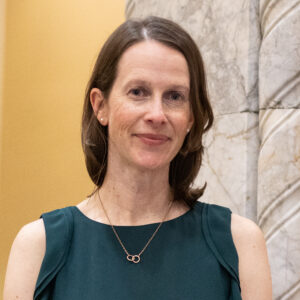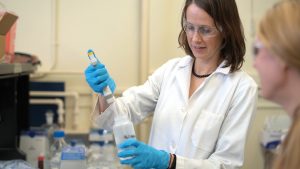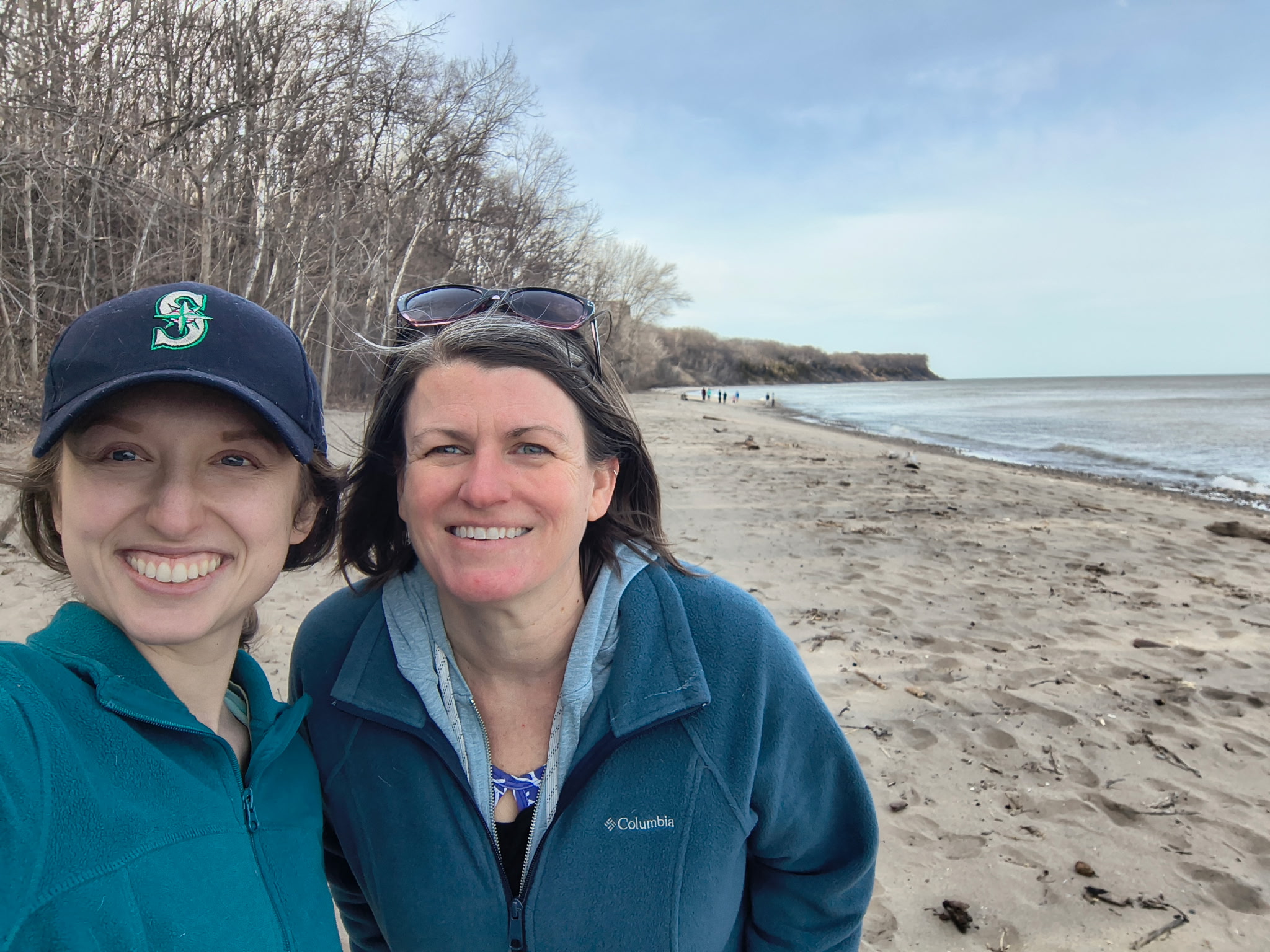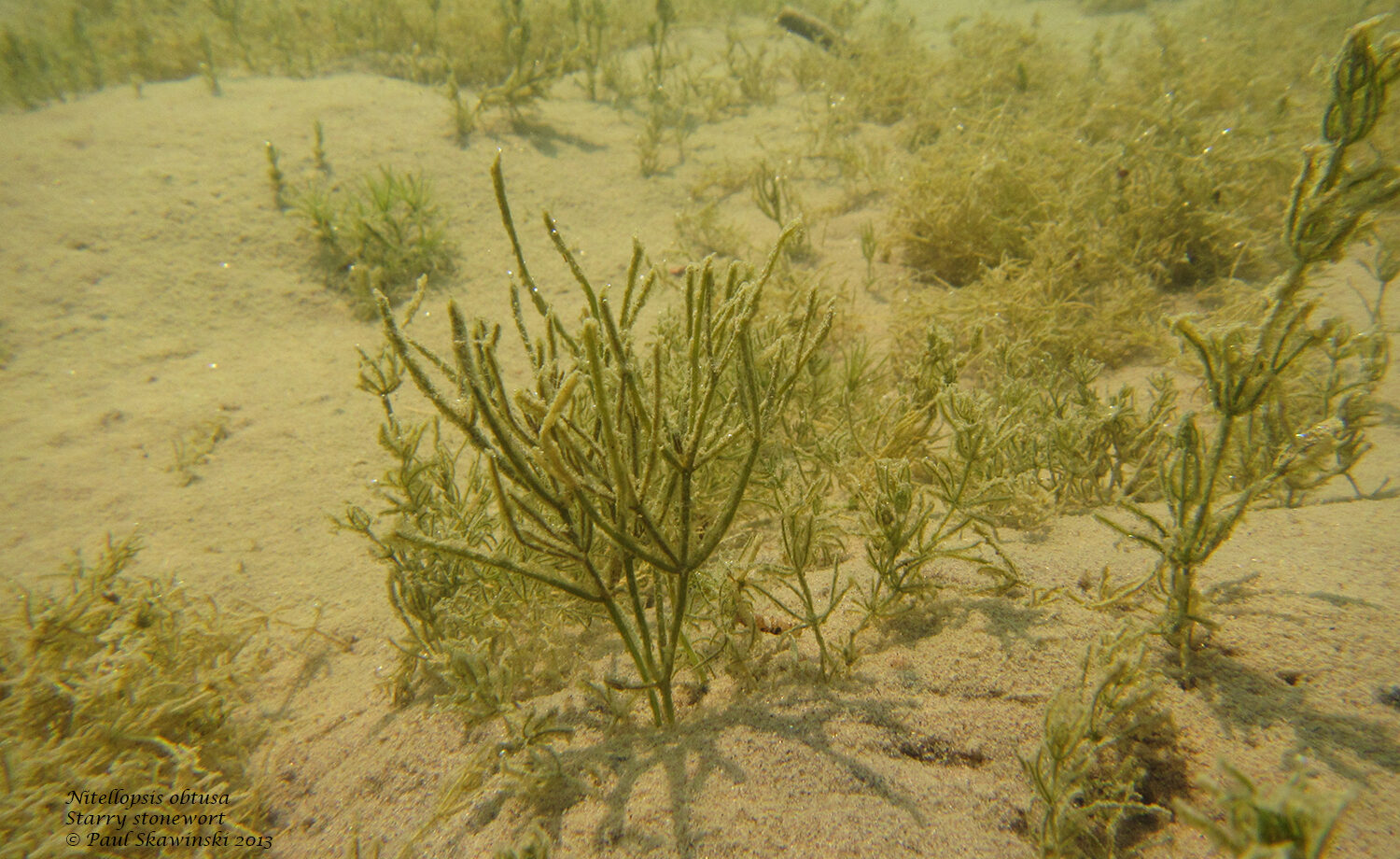University of Wisconsin-Madison Interim Vice Chancellor for Research and Graduate Education Cynthia Czajkowski named Christy Remucal as interim director of the Aquatic Sciences Center, which is home to the Wisconsin Sea Grant College Program and the University of Wisconsin Water Resources Institute (WRI). Both programs support multidisciplinary research, education and outreach for the protection and sustainable use of Wisconsin’s water resources. The appointment was effective Oct. 22.
Remucal’s appointment comes after the retirement of Aquatic Sciences Center Director Jim Hurley.
“Since I’ve been at the UW, I have benefitted from so many things at the center—funding opportunities, working with the outreach and communications staff, mentoring undergraduates through the Water@UW REU program,” Remucal said. “The center has helped me grow my own research group, and I’m looking forward to working on the other side. I see this as a way to give back to the water community.”

Christy Remucal is the new interim director for Wisconsin Sea Grant. Contributed photo.
A professor in the Department of Civil and Environmental Engineering, the Environmental Chemistry and Technology Program, and the Freshwater and Marine Science Program, Remucal’s research focus is on contaminants that impact water quality and processes to remove those contaminants. Some of her recent studies have been on per- and polyfluoroalkyl substances (PFAS). She serves as the only Universities of Wisconsin representative on the state’s PFAS Action Council.
“We are grateful for the commitment to the Wisconsin Idea and the leadership that Jim Hurley has provided in aquatic sciences research, and outreach and education in support of sustainable uses of our state’s natural resources while serving as director of the Aquatic Sciences Center for the past 11 years,” said Cynthia Czajkowski interim vice chancellor for research and graduate education. “And we welcome Christy to her new leadership role as interim center director. She has as a strong leadership background and ran excellent, relevant research experience that makes her perfectly qualified to serve in this capacity.”
When tapped for the interim center directorship, Remucal was leading the Aquatic Chemistry group at UW-Madison and was acting as the director of the Water Science and Engineering Laboratory. In addition to managing the center, she will continue to teach, mentor and conduct research. Remucal’s mentoring background includes mentoring 20 graduate students and postdoctoral researchers.
WRI came to the state 59 years ago. Wisconsin Sea Grant was founded 55 years ago. The programs with their similar missions merged in 1998 and created a highly efficient and cost-effective model for drawing out the best from Wisconsin’s aquatic scientists who, collaboratively, make a difference statewide, nationwide and around the world. Areas of particular strength for the programs are ecosystems contaminant research, extension service to coastal residents and fostering scholarship and training of the next generation of water science leaders.
Remucal is only the fourth WRI and Sea Grant director in the history of the programs, which is evidence of the steady leadership provided by previous directors that has been marked by excellence. In their most recent reviews by federal funders, both programs ranked top in the nation among their peers.
Remucal wants to continue seminal successes, build on them and seek research and outreach opportunities in the areas of diversity, equity and inclusion, and how compromised water quality may disproportionately affect some communities.
In terms of other research priorities, she called out emerging contaminants and microplastics. “There is so much that needs to be done. These water quality challenges are incredibly complex and there is a real need for outreach and communication to help the public understand these issues,” Remucal said.
“There is also a need for basic water research, fundamental work that addresses research questions. At the same time, there is a need to do research that serves the state agencies and the people of Wisconsin. It’s not always possible to have those align, but in many cases they can. Increasing knowledge and conducting actionable research is very valuable,” she said.

Remucal is a prominent researcher on contaminants in water. Photo by Bonnie Willison
Remucal holds degrees in civil and environmental engineering from the University of California-Berkeley (master’s and Ph.D.) and the Massachusetts Institute of Technology (Bachelor of Science). Before joining Madison’s faculty in 2012, she completed a post-doctoral position in the Institute for Biogeochemistry and Pollutant Dynamics at the Swiss Federal Institute of Technology.
Her background and passion have brought her to the center and Remucal summed it up: “Water is such a critical issue for people in Wisconsin. It is necessary for life and people in our state really do value our water resources. Because there is such a clear importance and relevance for water, this a great opportunity for outreach. It comes back to embracing the Wisconsin Idea and sharing our research with people in Wisconsin.”
Sea Grant is funded by the National Oceanic and Atmospheric Administration and WRI is funded by the U.S. Geological Survey.





